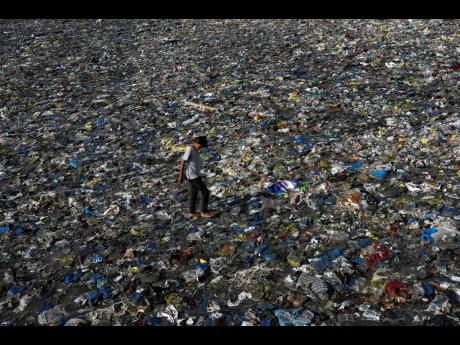José Aguilar-Manjarrez | Plastic-free oceans – an urgent need to protect environment
Global plastic production has increased exponentially in the last decades, reaching nearly 400 million tons per year. Of this total, only nine per cent has been recycled. The rest ends up in landfills, and between 19 and 23 million tons end up in the sea. Plastic marine litter from shipping, fishing, and mariculture sectors seriously affects habitats, fish stocks, and other marine-coastal species.
With its vast coastal area, Latin America and the Caribbean play an important role in global fisheries and aquaculture production. However, this natural wealth is at risk because of plastic pollution.
With more than 72,000 kilometres of coastline, the Latin America and Caribbean region generates 11 per cent of the world’s fish production and four per cent of aquaculture.
In 2021, aquaculture in the region produced a total of 3.84 million tons of food products, including the cultivation of algae, which are important for human consumption and local trade.
Artisanal fisheries not only supply up to 85 per cent of fish consumption in some countries in the region, but also sustain the food and nutrition security of numerous coastal and watershed communities that include many indigenous peoples.
It is estimated that a 250-gram portion of mussels could contain up to 1,000 microplastic particles, depending on their density and volume.
ECOSYSTEM AT RISK
The presence of plastics puts the ecosystem at risk because it alters the life cycles of species. Also, if a marine animal eats plastic and is consumed, it affects food safety. Although a tolerable daily intake has yet to be established, it is a serious problem affecting the aquatic environment and human beings.
We must promote responsibility in the use of plastics, prevent and reduce their use, and seek alternatives that can replace them. Plastic and microplastic contamination can only increase and add to the current environmental stresses on fisheries resources. Filling the research gap on microplastic impacts at population and species assemblage levels would help us understand better the implications for fisheries and aquaculture resources.
The GloLitter project, implemented by the International Maritime Organization in collaboration with the Food and Agriculture Organization of the United Nations (FAO), assists developing countries in preventing and reducing marine litter, especially plastic marine litter, within the maritime transport and fisheries sectors and identify opportunities for the reduction of plastic uses in both industries.
This project is the first to address this issue globally and is financed by the governments of Norway, Australia, and the Kingdom of Saudi Arabia. In Latin America and the Caribbean, the governments of Costa Rica, Jamaica, and Brazil support the initiative in developing national action plans to prevent and reduce plastic pollution in the shipping and fisheries sectors.
Investing in coastal communities today will curb overfishing and promote sustainable management of aquatic ecosystems. It also helps reduce pollution, increase marine protected areas, improve the health of critical ecosystems and fish stocks, and prevent illegal fishing.
José Aguilar-Manjarrez, FAO fisheries and aquaculture officer for Latin America and the Caribbean. Send feedback to columns@gleanerjm.com.


